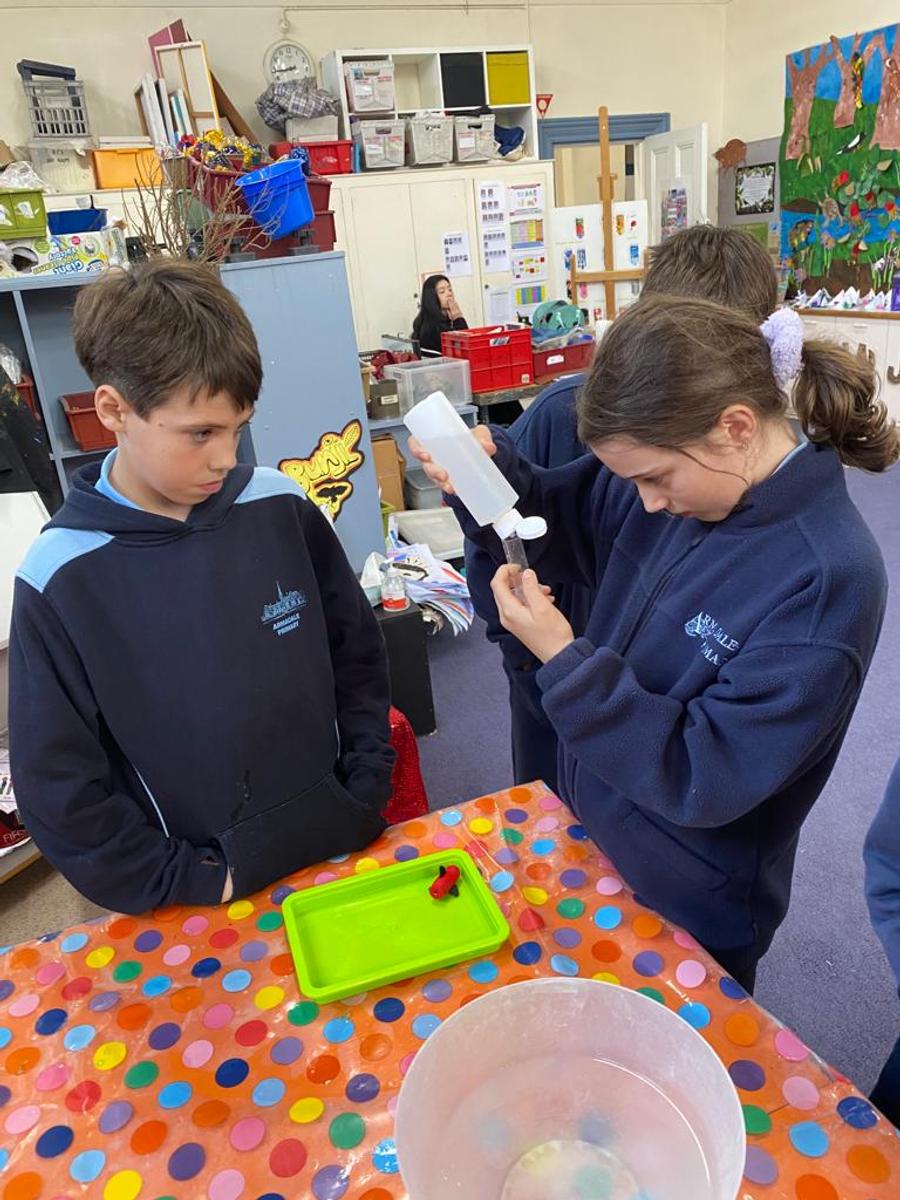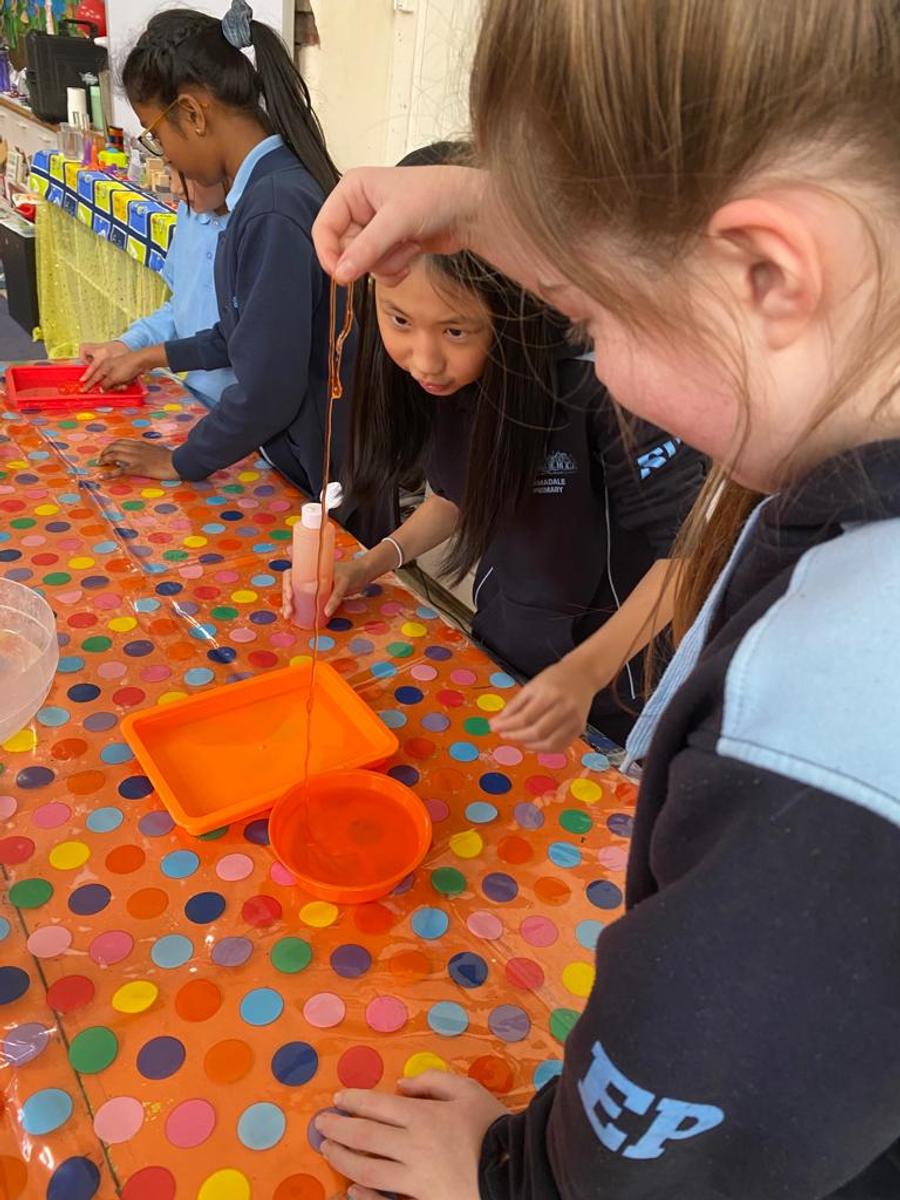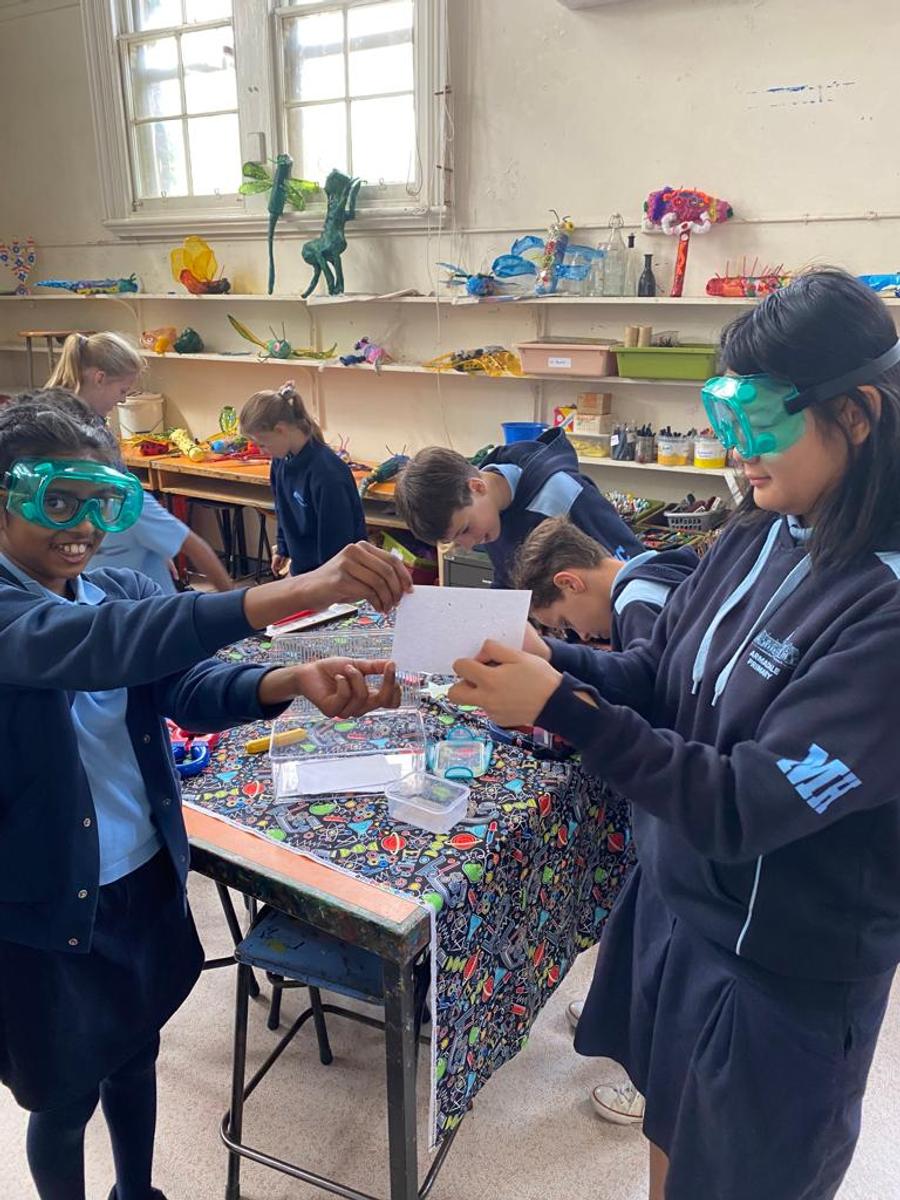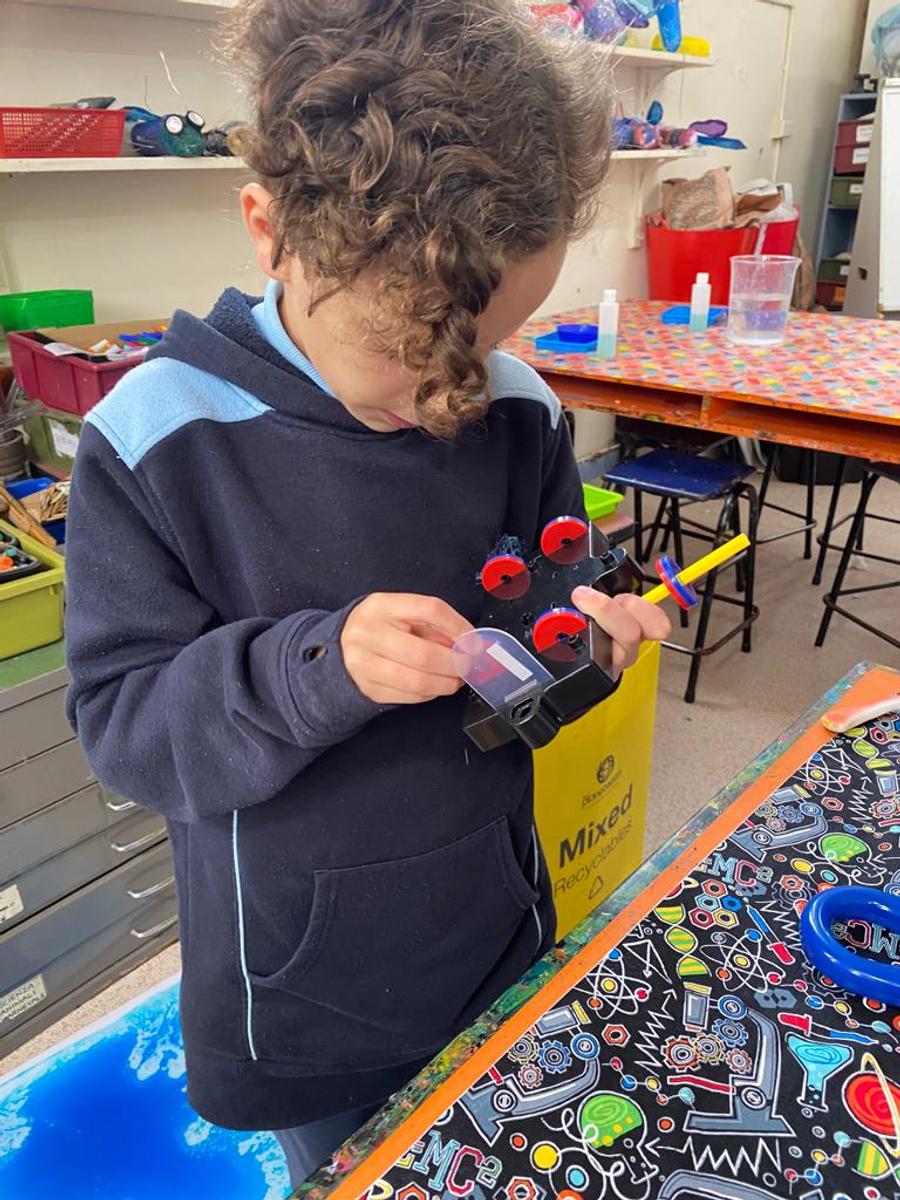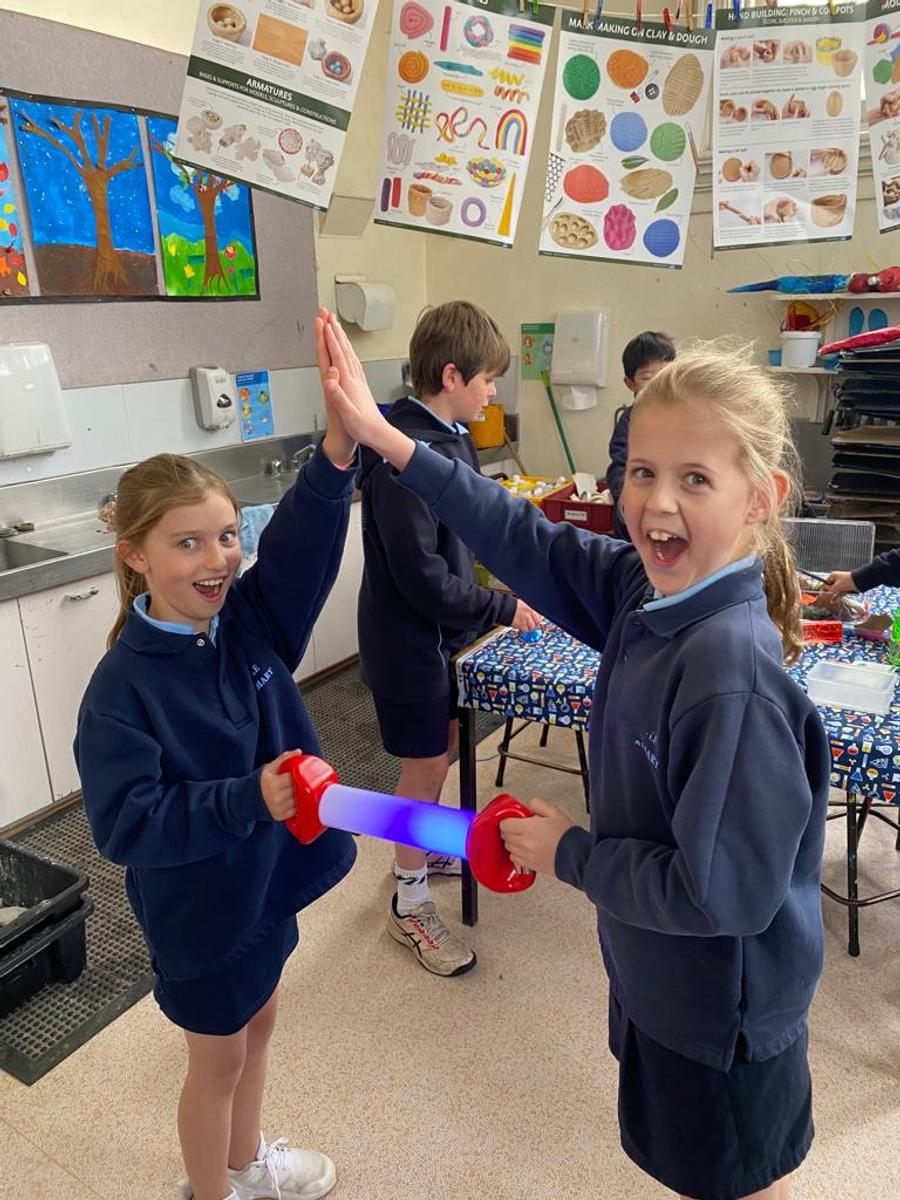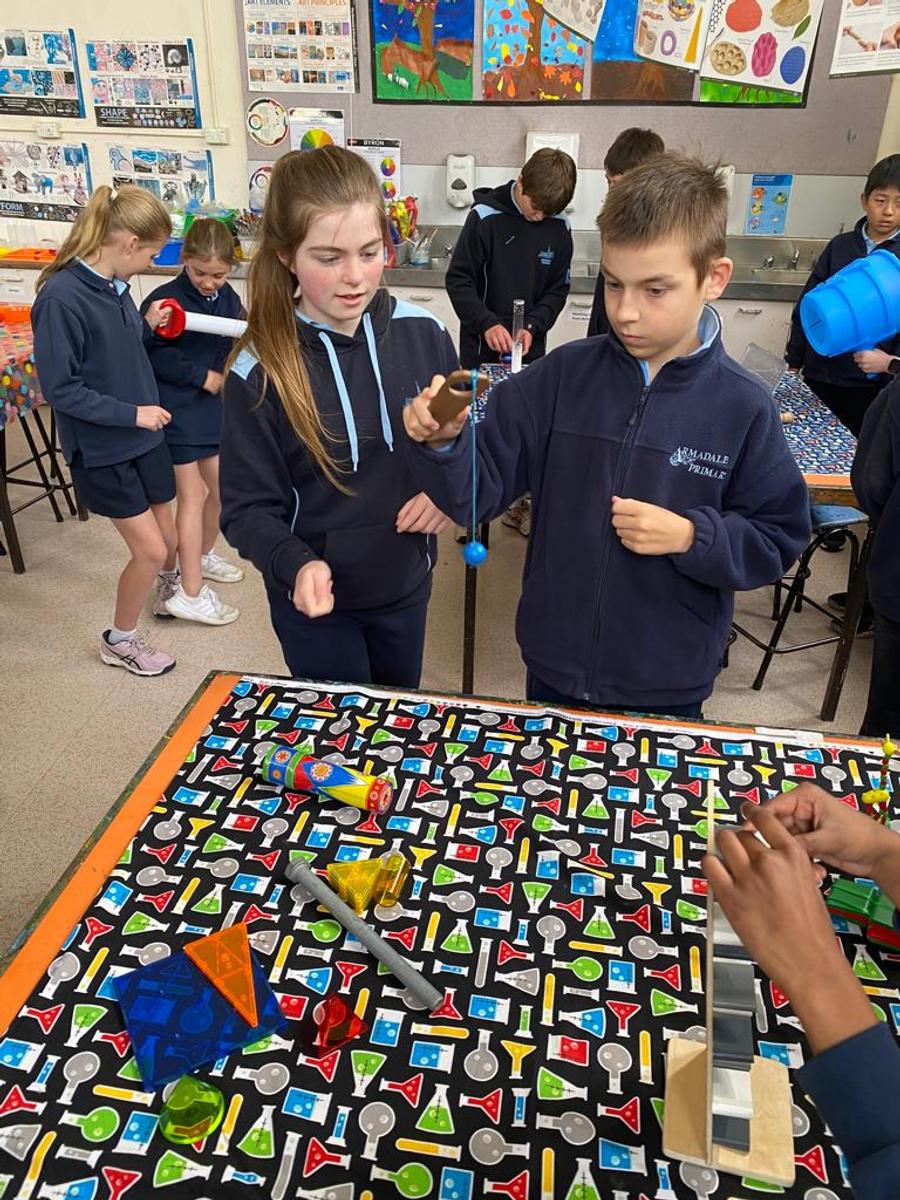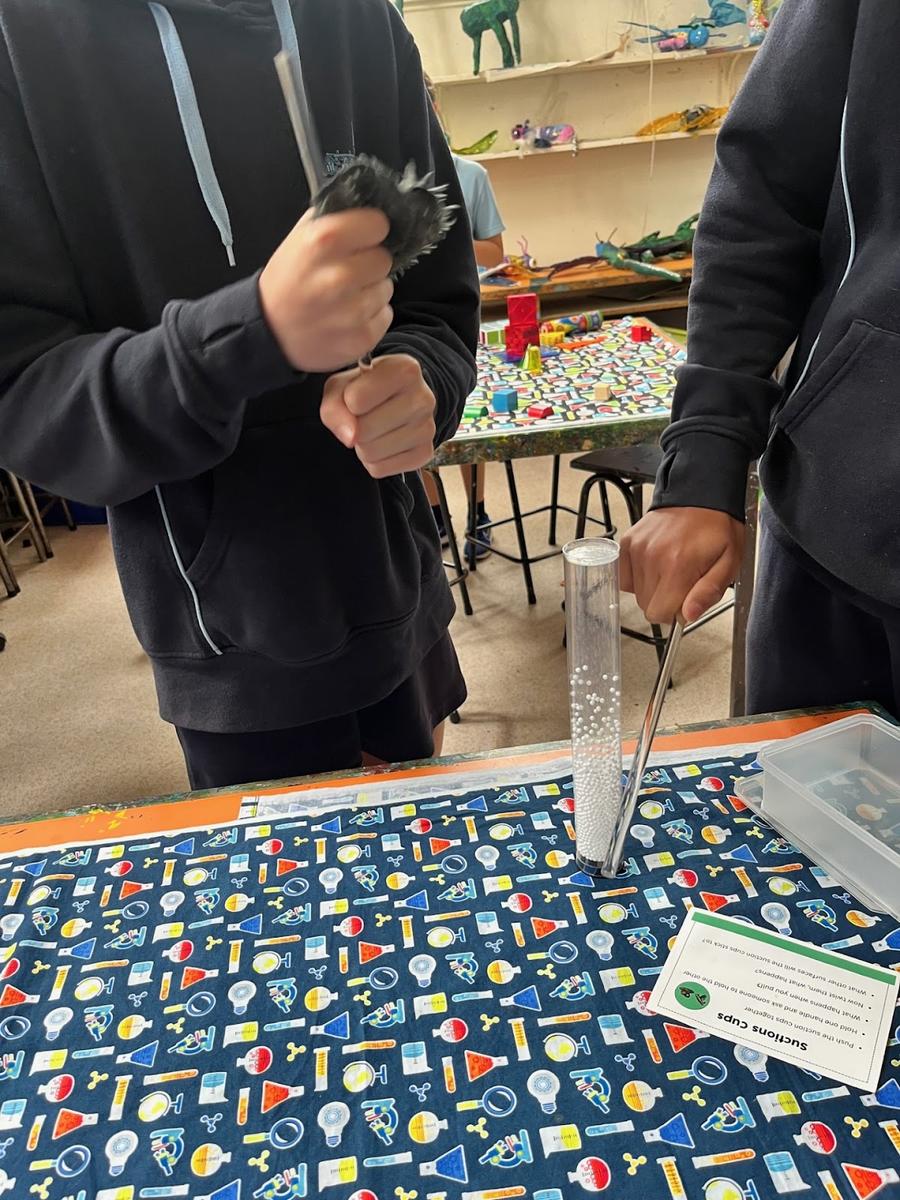Year 5/6 Bulletin
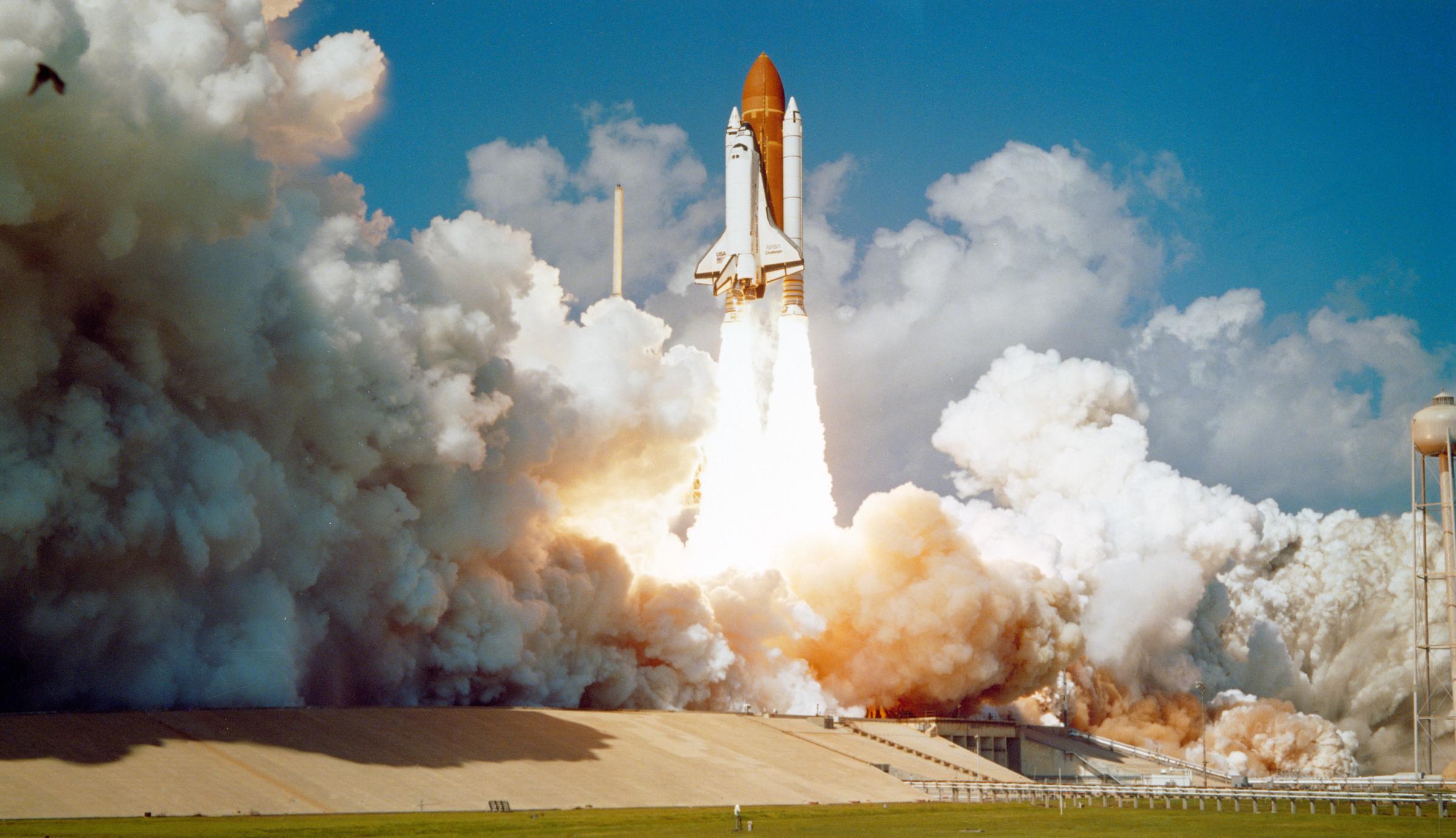
Crazy Chemical Science incursion
Learning intention: To identify that solids, liquids and gases behave in different ways and changes to materials can be reversible or irreversible.
Tasks: Students explored a variety of work stations, where each station provides an opportunity to experiment with different elements of chemical science.
Students at work: Please have a discussion with your children about the images below to get a better understanding of what was happening at the incursion.
Student reflections: What is something you learned through the session?
“I learned that humans have electricity in them and can conduct electricity”
“I learned that if you put a piece of paper between two metal balls and hit them together, you create holes because the paper is burned.”
“If you combine two specific liquids it can make a stretchy solid”
“When you combine a solid (bicarb soda) and a liquid (vinegar) it creates a chemical reaction where the product is a gas and can project a rocket.”
“I learned that magnets are more influential in everyday life, like where we did the floating pen experiment and that in Japan, the bullet trains run using magnets.”
“I learned about chemical reactions when you combine solids and liquids to create gases.”
“I learned that all people have electrical currents that can be passed through the whole class, but it doesn’t work through hair, we had to hold hands.”
“I learned about chemical and physical changes through experiments and if they are reversible and irreversible changes.”
“I learned that there is slime that you can extract from seaweed, and a chemical is used in pickling cucumbers, that when they react, they form a shell around the seaweed extract, making a stringy tube.
“When you add air or steam into the shooter, you can make cloud circles.”
What you can do now (to continue the learning at home from this experience):
- Continue discussions around states of matter and how materials can change through the different states.
- Conduct simple science experiments related to solids, liquids and gases.
- Find examples of reversible and irreversible changes from your environment
- Conduct simple science experiments related to reversible and irreversible changes
- Watch documentaries around states of matter or reversible and irreversible changes and have discussions based on the documentary
Jenny, Zaim and Jade
Year 5/6 Team
Jenny.Kourkouvelis@education.vic.gov.au



